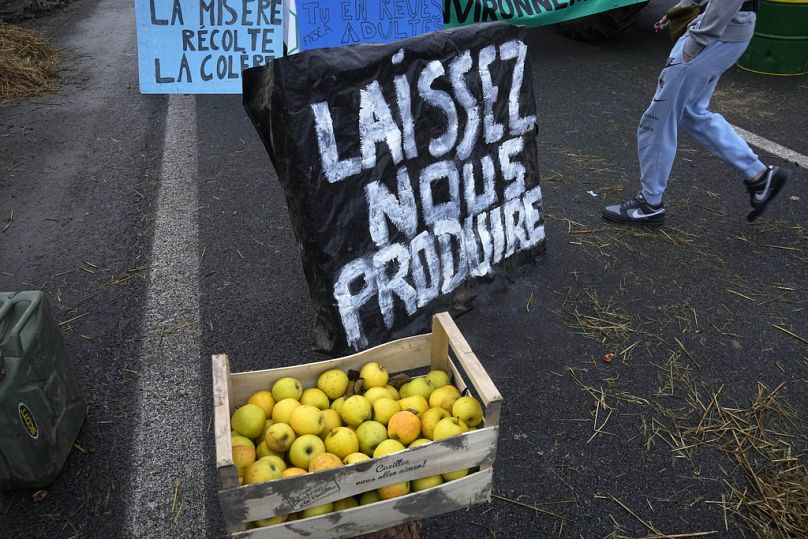The current mood indicates that the ECB will become the first central bank to cut rates. However, others are saying it is too early to pop open the champagne bottle as the fight against inflation is not over, Osama Rizvi writes.
Ahead of the European Central Bank's next meeting on 14 December, many analysts are predicting different outcomes from the central bank of Europe — to hold, increase, or cut interest rates. Last time, the bank paused the rate at 4%.
Higher interest rates adversely impact consumers as mortgages and interest on other loans become expensive.
Moreover, as the cost of businesses increases — now that the interest rates are high — it is usually passed on to the consumers which essentially means that you end up paying more for your everyday items.
This feeds into the cost of living crisis, which is impacting most people across Europe in one way or another. Meanwhile, when rates fall the opposite of the above follows and the economy expands overall.
But for most people, the main questions are: what does this mean and how will it affect our wallets?
Why are interest rates being increased?
There are various functions of a rising interest rate but the most significant is to fight inflation.
The world witnessed an unprecedented increase in inflation post-pandemic. There were many reasons behind this but an increase in money supply was the main one.
Also, as supply chains across the world were distressed, disturbed and disconnected, these disruptions caused prices of goods to increase as could be observed in the Baltic Dry Index — which tracks the shipping cost for bulk dry goods — that touched its highest in 12 years.
This resulted in an increase in raw material costs. A business in Europe importing yarn from Bangladesh now had to pay twice its pre-pandemic levels. The owner would pass this increase in cost to the consumers which subsequently causes inflation.
Central banks across the world, including the ECB, have been fighting inflation by hiking interest rates.
Will the ECB cut rates in 2024?
Now that we know the ins and outs of monetary policy and its relation to inflation, it is time to ask the main question: will the ECB cut its rate next time?
Eurozone inflation fell to 2.4% in November, the lowest since July 2021. The ECB has a target of 2% inflation and things seem to be moving in this direction.
The current mood indicates that the ECB will become the first central bank to cut rates as gleaned from the comments from Bank of France Governor Francois Villeroy de Galhau at a recent conference. He said that barring an outright shock we can expect that the rate hiking cycle is now over as progress in disinflation has been “faster than expected”.
This led to government bond yields dropping to multi-month lows as investors are now betting on a cut with a 75% chance of a rate cut, compared to a 40% last week. Goldman Sachs has also moved its estimated date of a rate cut by the ECB from the third quarter of 2024 to the second.
However, others are saying it is too early to pop open the champagne bottle as the fight against inflation is not over. Innes McFee, chief economist at Oxford Economics, said that the ECB is the most vulnerable to making a monetary policy mistake by cutting rates too early.
ECB President Christine Lagarde shared her concerns that she expects inflation to rise again as subsidies on energy prices will be removed.
At the start of last month, she also said that it won’t be before the “next couple of quarters” that the ECB will start to cut rates.
"Although soft indicators have stabilised at low levels recently, the weak macro-economic backdrop no longer justifies rate hikes, even for the hawks," ING also noted in its latest report ahead of the ECB meeting.
Moreover, as ING also highlighted, the ECB will have to consider the still relatively solid labour market and wage growth.
"And with core and headline inflation still above target, any discussion on imminent rate cuts would be premature," ING added.
Osama Rizvi is an economic and energy analyst with a focus on commodities, macroeconomy, geopolitics, and climate change.
At Euronews, we believe all views matter. Contact us at view@euronews.com to send pitches or submissions and be part of the conversation.




















